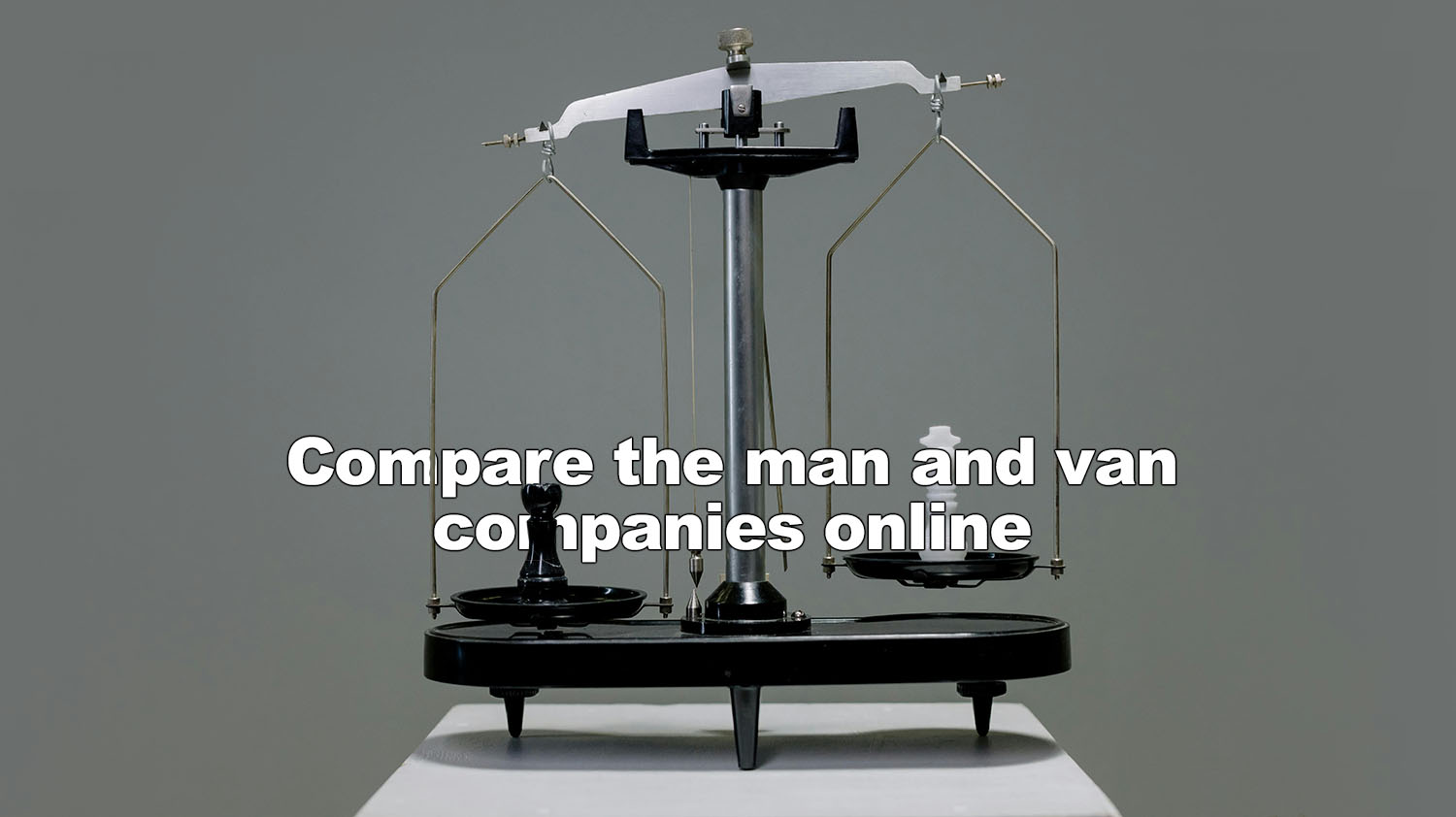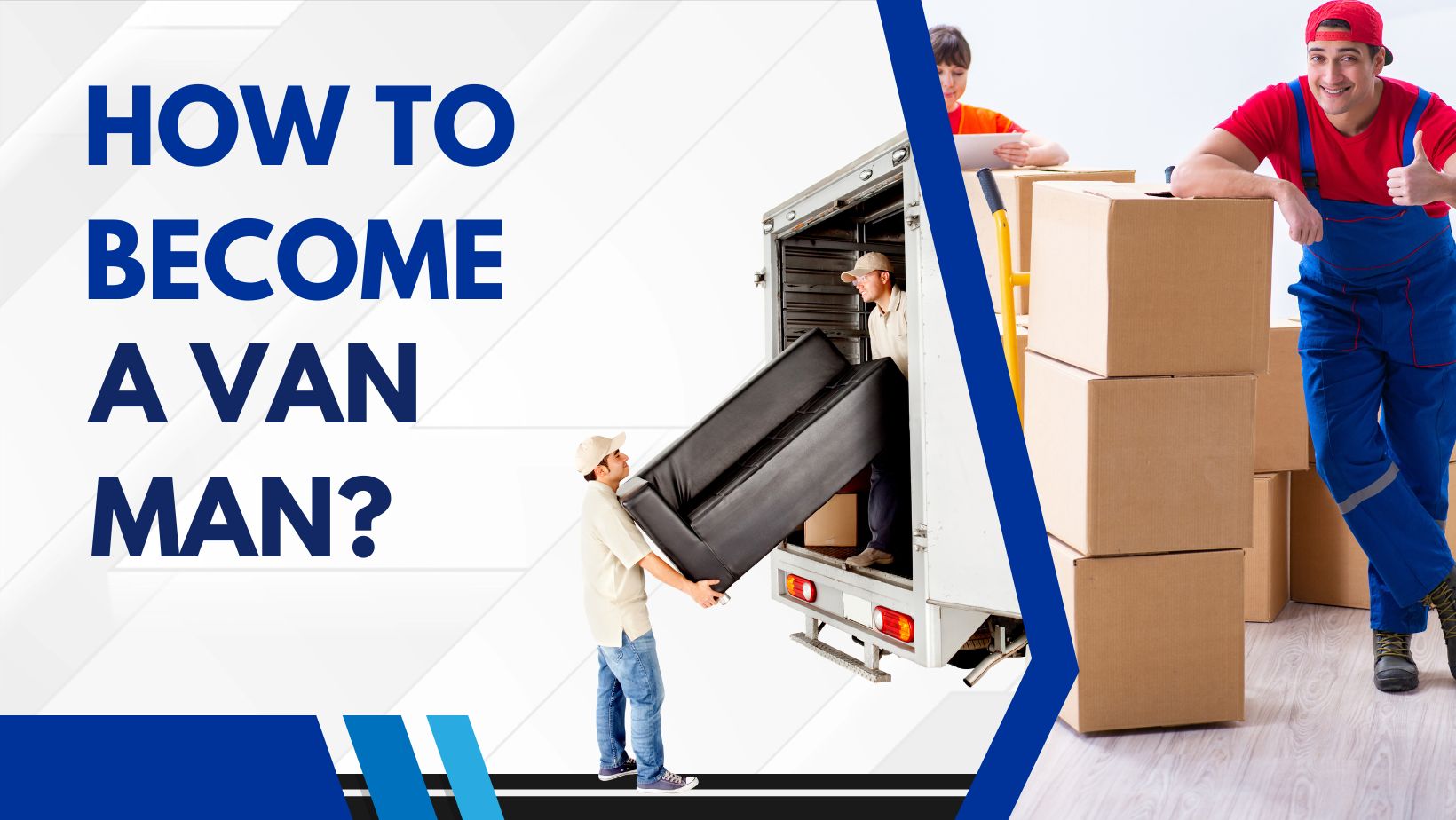Operating as a man with a van can be a lucrative venture, but it is imperative to have the right insurance in place. The correct insurance not only protects your vehicle against damages from accidents, theft, or vandalism, but also secures your business against various risks such as liability claims, loss or damage to goods in transit, and potential legal expenses.
Additionally, having adequate insurance coverage enhances your business credibility, provides peace of mind to your clients, and ensures compliance with legal requirements, ultimately safeguarding your financial stability and reputation in the market.
Okay, but...
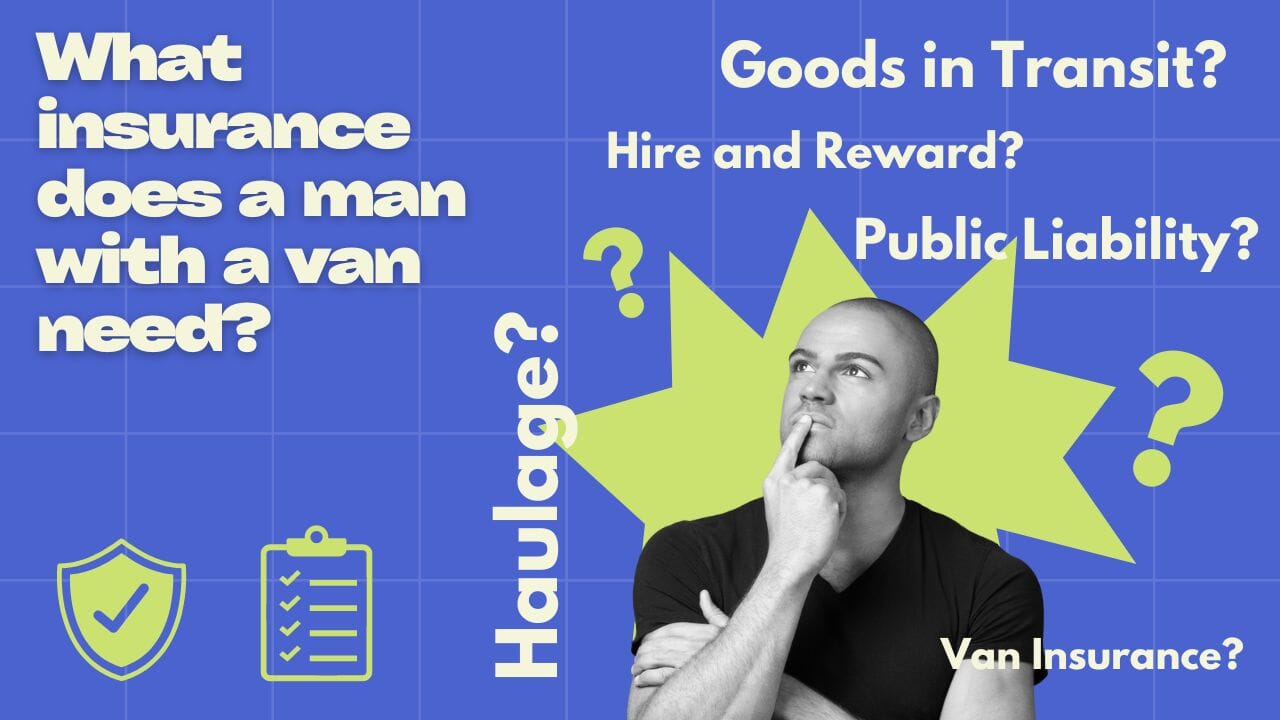
Ensuring Proper Coverage: An Essential Step
Sorting out your insurance is crucial. Without the right cover, you could face significant financial losses if things go wrong. Whether it's an accident, damage to goods, or a claim made against you by a third party, having the appropriate insurance ensures you're prepared for any eventuality.
Key points to consider:
- Financial protection against accidents and damages
- Coverage for third-party claims
- Peace of mind knowing you are prepared for unforeseen events
Van Insurance: The Basics
First and foremost, you'll need a van insurance for hire and reward. Hire and reward insurance is a legal requirement in the UK for individuals or businesses using their vehicles to transport goods or passengers in exchange for payment.
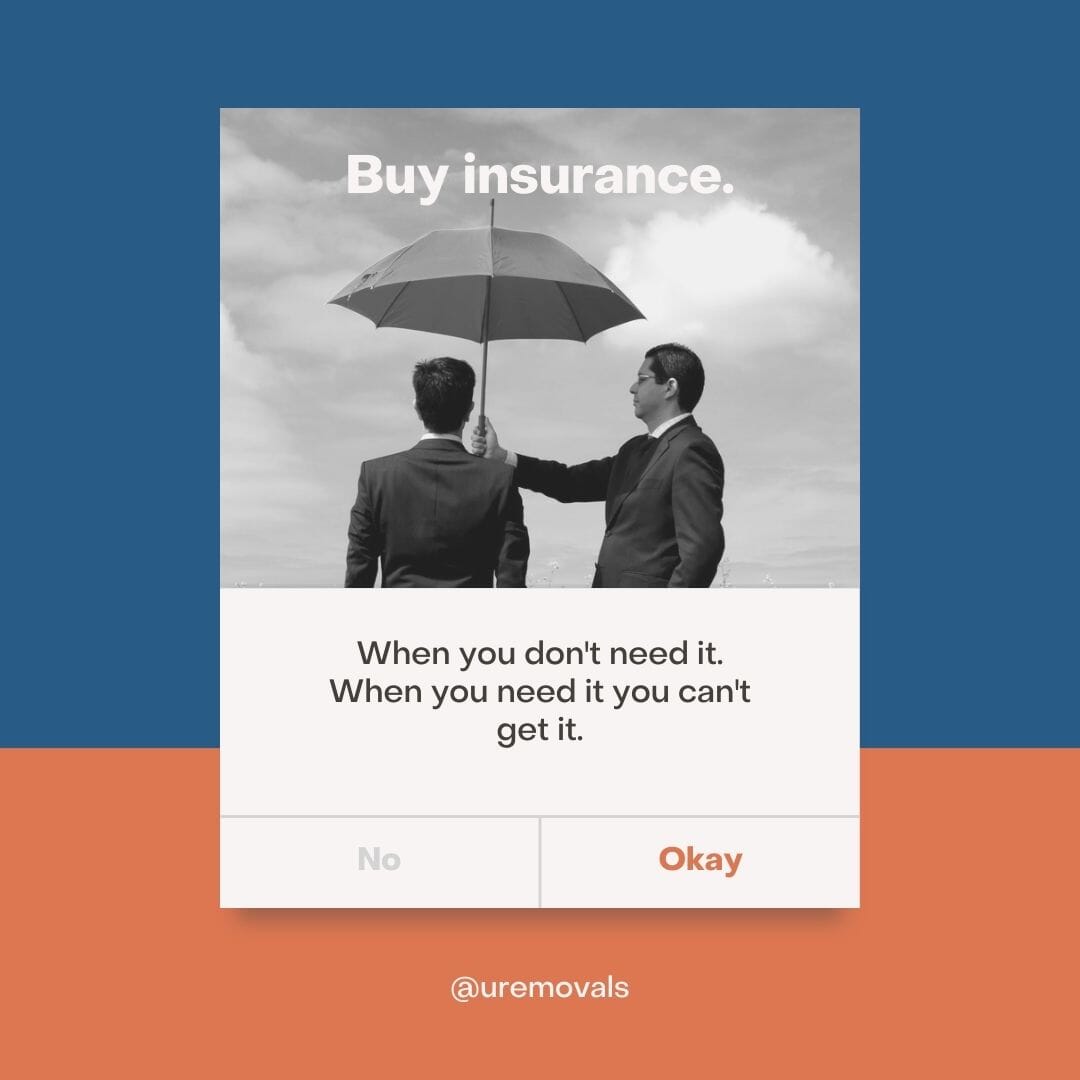
This type of insurance is essential for activities such as:
- Courier and delivery services (Including, man and van service): Transporting goods for commercial purposes.
- Taxi and private hire services: Carrying passengers for a fee.
- Ride-sharing drivers: Offering rides through platforms like Uber or Lyft.
Hire and reward insurance ensures that drivers are adequately covered for the specific risks associated with using their vehicles for commercial purposes, which standard private motor insurance policies do not cover.
Driving without the appropriate insurance can result in significant penalties, including fines, points on the driver's license, and potential disqualification from driving.
Goods in Transit Insurance
Goods in transit insurance is optional but vital for protecting the items you're transporting. Whether you're moving furniture, delivering parcels, or carrying tools, this insurance covers the cost of repairing or replacing goods that are damaged, lost, or stolen while in transit. This cover is especially important if you're handling high-value items or fragile goods.
Advantages of Goods in Transit Insurance:
- Financial protection for damaged, lost, or stolen goods
- Essential for high-value and fragile items
- Enhances client trust and confidence
When Haulage Insurance May Be Required
Haulage insurance is required for businesses and individuals who transport goods over long distances for commercial purposes. This type of insurance is specifically designed to cover the unique risks associated with transporting goods, such as accidents, theft, or damage to the goods being transported. Here are some key situations when haulage insurance is needed:
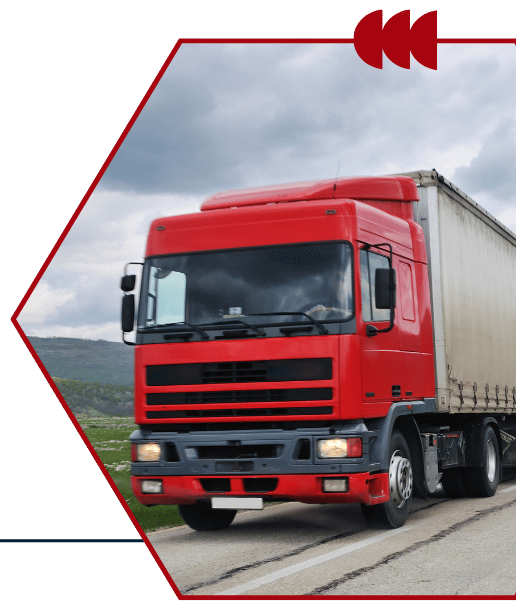
- Long-Distance Transportation: If your business involves transporting goods over long distances, whether within the UK or internationally, haulage insurance is essential to cover the risks associated with long-haul trips.
- Commercial Goods Transport: Businesses that transport goods for other companies or clients for a fee need haulage insurance. This includes businesses that provide freight services, logistics, and delivery services over longer routes.
- Contractual Requirements: Some contracts may stipulate that haulage insurance is required. Clients or companies you work with might require proof of haulage insurance to ensure that their goods are covered during transport.
- High-Value Goods: If you are transporting high-value goods, haulage insurance is crucial to protect against potential losses due to damage or theft.
- Specialized Transport: If your business involves the transportation of hazardous materials, perishable goods, or oversized items, haulage insurance can provide the necessary coverage for the specialized risks involved. Fleet Operations: Companies that operate a fleet of vehicles for transporting goods typically need haulage insurance to cover all vehicles in their fleet.
Coverage Provided by Haulage Insurance
- Vehicle Insurance: Coverage for the haulage vehicle itself, including damage from accidents and other risks.
- Goods in Transit Insurance: Protection for the goods being transported against damage, loss, or theft.
- Liability Insurance: Coverage for legal liabilities arising from accidents or incidents during transportation.
- Breakdown Assistance: Roadside assistance and recovery services in case of vehicle breakdowns during transit.
Sources for Further Reading
- GOV.UK - Vehicle Operator Licensing
- Business Choice Direct - Haulage Insurance
- Simply Business - Haulage Insurance Explained
By ensuring you have the appropriate haulage insurance, you can protect your business from significant financial losses and ensure compliance with legal and contractual requirements.
Public Liability Insurance: Protecting Against Claims
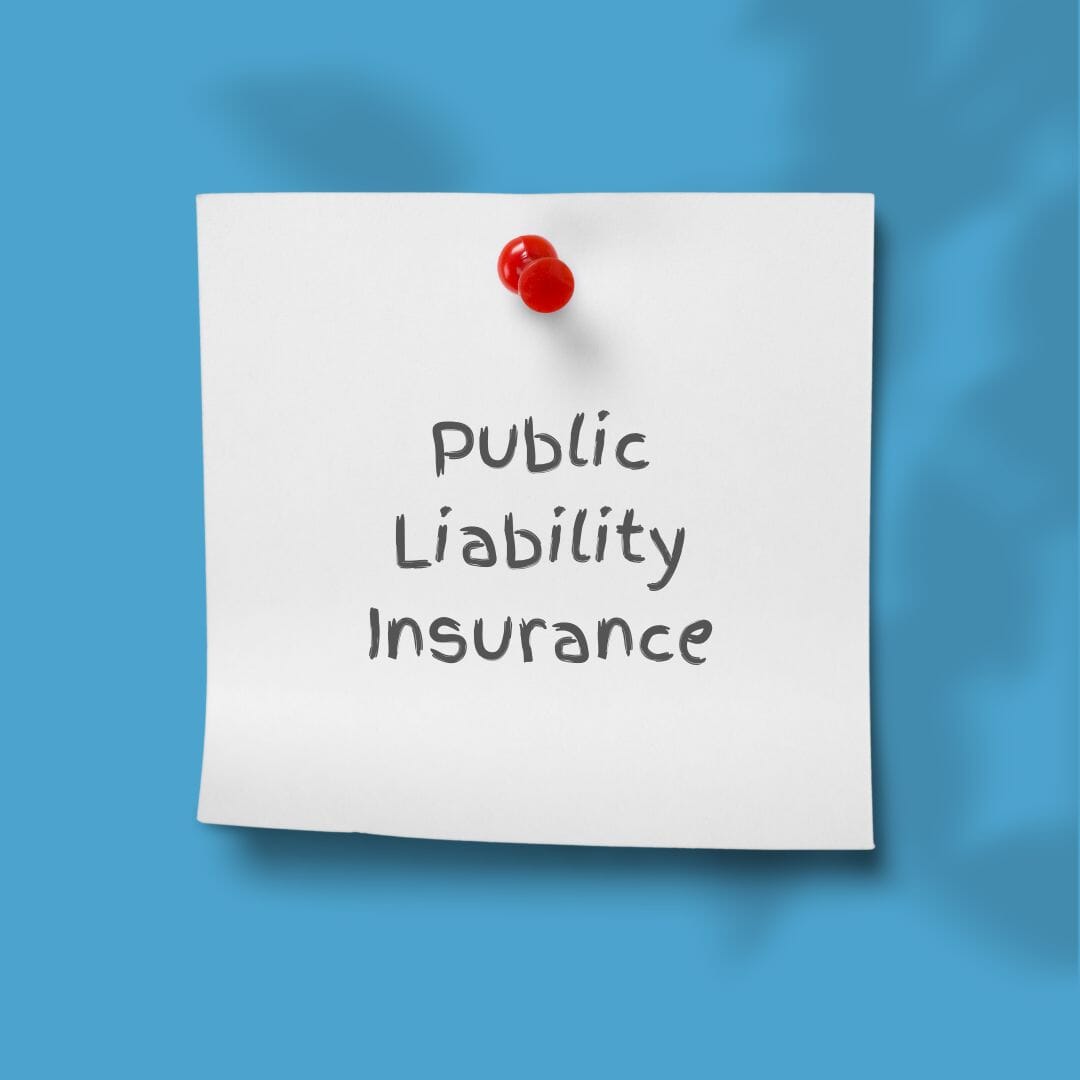
Public liability insurance is optional also, but strongly recommended protects you if a third party is injured or their property is damaged due to your business activities. For instance, if you're unloading items from your van and accidentally cause damage to someone's property or injury to a person, public liability insurance will cover the legal costs and any compensation claims.
Importance of Public Liability Insurance:
- Covers legal costs and compensation claims
- Maintains business reputation
- Ensures financial stability
Tools & Equipment Insurance: Safeguarding Your Gear
As a man with a van, your tools and equipment are fundamental to your business. Tools & equipment insurance covers the cost of repairing or replacing these essential items if they are stolen, damaged, or lost. This ensures that your business operations are not interrupted and you can continue providing services without unnecessary delays.
Benefits of Tools & Equipment Insurance:
- Protection against theft, damage, or loss
- Continuity of business operations
- Reduces downtime and operational delays
- Protecting Your Cargo: Essential for Client Trust
Having insurance that specifically covers your cargo is not only a safety net for your business but also builds trust with your clients. Knowing that their goods are insured gives clients peace of mind, which can enhance your business reputation and lead to more referrals.
Key Points:
- Enhances client trust and satisfaction
- Promotes business reputation
- Leads to increased referrals
Shielding Against Unpredictable Events: Be Prepared
Unpredictable events, such as accidents or natural disasters, can wreak havoc on your business. Comprehensive insurance shields you from the financial burden that can arise from these unexpected occurrences. By being prepared with the right insurance, you can focus on growing your business rather than worrying about potential mishaps.
Comprehensive insurance offers peace of mind, knowing that all aspects of your business are covered. From vehicle insurance to liability and cargo protection, having a comprehensive policy means you're well-equipped to handle any situation. This holistic approach to insurance ensures that your business remains secure and you can continue to operate efficiently.
Getting a Van for Your Business: Starting Strong
When getting a van for your business, it's important to consider the types of insurance you'll need from the outset. By securing the right insurance policies, you not only protect your investment but also lay a strong foundation for your business. Investing in comprehensive coverage right from the start helps you avoid potential pitfalls and ensures that your business can thrive.
Conclusion
The right insurance is indispensable for a man with a van. From protecting your vehicle and cargo to covering liabilities and safeguarding tools, having the appropriate policies in place is essential for running a successful and secure business. Take the time to assess your needs, compare policies, and invest in comprehensive coverage to ensure your business is well-protected.







